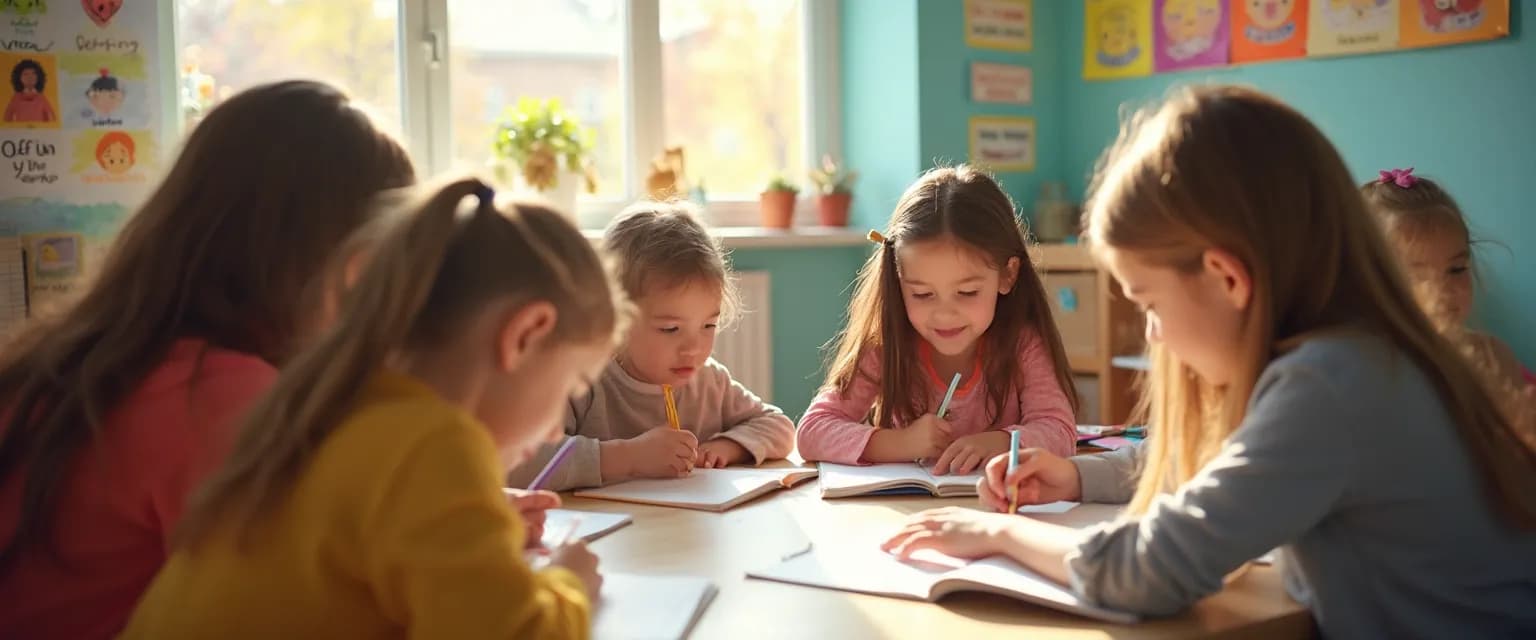5 Fun Self-Awareness Games for Elementary Students: Daily 5-Minute Activities
Developing self awareness for students in elementary school creates a foundation for lifelong emotional intelligence. Unlike traditional academic subjects, self-awareness skills help children understand their emotions, recognize their strengths, and navigate social situations with confidence. The good news? You don't need elaborate programs or extensive time commitments to foster these crucial skills. Brief, playful reflection activities integrated into daily routines create powerful opportunities for growth, especially when presented as games rather than formal lessons. Young minds naturally engage with playful approaches, making self-awareness development feel less like work and more like fun.
When designed properly, even five-minute daily reflection games can transform how students understand themselves and interact with others. These quick activities fit easily into busy classroom schedules or home routines, creating consistent practice opportunities without overwhelming teachers or parents. The key to effective self awareness for students lies in this consistency—small daily doses rather than occasional intensive lessons.
Research shows that elementary students who develop strong self-awareness skills perform better academically and demonstrate improved social skills. By implementing brief, engaging reflection activities, you're not just teaching a nice-to-have skill—you're establishing essential building blocks for success across all areas of life.
5 Quick Self-Awareness Games for Students That Take Just Minutes
These five simple games provide engaging ways to build self awareness for students while keeping the experience playful and age-appropriate. Each activity requires minimal preparation but delivers significant benefits when practiced regularly.
1. Emotion Detective
Transform students into emotion investigators with this quick game. Show pictures of different facial expressions or describe brief scenarios, then have students identify the emotions being expressed. This helps children recognize emotional cues in themselves and others. Extend the activity by asking students to share times they've experienced similar feelings, strengthening their emotional vocabulary and emotional regulation skills.
2. Strength Spotlight
Each day, focus on a different personal strength (kindness, creativity, persistence, etc.). Ask students to notice moments when they or classmates demonstrate this strength throughout the day. During a brief closing circle, students can share their observations. This practice helps children identify positive qualities in themselves and others, building confidence and appreciation for diverse talents.
3. Weather Report Check-In
Teach students to describe their emotional state using weather metaphors: "I'm feeling sunny and bright" or "There's a storm cloud over my head today." This simple technique gives children a concrete, non-threatening way to communicate complex feelings. Weather reports can be shared during morning meetings or transition times, taking just seconds per student while building essential self awareness for students.
4. Learning Style Explorer
Through playful mini-activities, help students discover how they learn best. For example, give instructions three different ways—verbally, written, and demonstrated—then ask students which method helped them understand most easily. These insights help children advocate for their learning needs and develop personalized study strategies.
5. Gratitude Circle
End each day with a quick gratitude practice where students share one thing they appreciate about themselves, a classmate, or something they learned. This simple ritual builds positive self-awareness while creating a supportive classroom culture.
Measuring Growth in Student Self-Awareness Through Daily Practice
Tracking progress in self awareness for students doesn't require complex assessment tools. Simple observation of changing behaviors often provides the clearest evidence of growth. Look for increased emotional vocabulary, more frequent use of "I" statements when discussing feelings, and improved conflict resolution skills. These behavioral shifts indicate developing self-awareness.
Teachers consistently report that classrooms implementing daily reflection games experience fewer behavioral disruptions and increased learning engagement. When students understand their emotional states and learning preferences, they're better equipped to navigate challenges and stay focused on learning tasks.
Sharing these simple self awareness for students activities with parents creates powerful home-school connections. Send home brief descriptions of classroom reflection games with suggestions for implementing similar activities during family routines like dinner time or bedtime. This consistency between environments reinforces the importance of self-awareness skills.
The long-term benefits of developing self awareness for students extend far beyond elementary school. Research shows that children with strong self-awareness skills demonstrate greater resilience, better academic performance, and healthier relationships throughout their lives. By investing just minutes each day in these playful reflection activities, you're helping students build essential skills that will serve them in every future endeavor.




